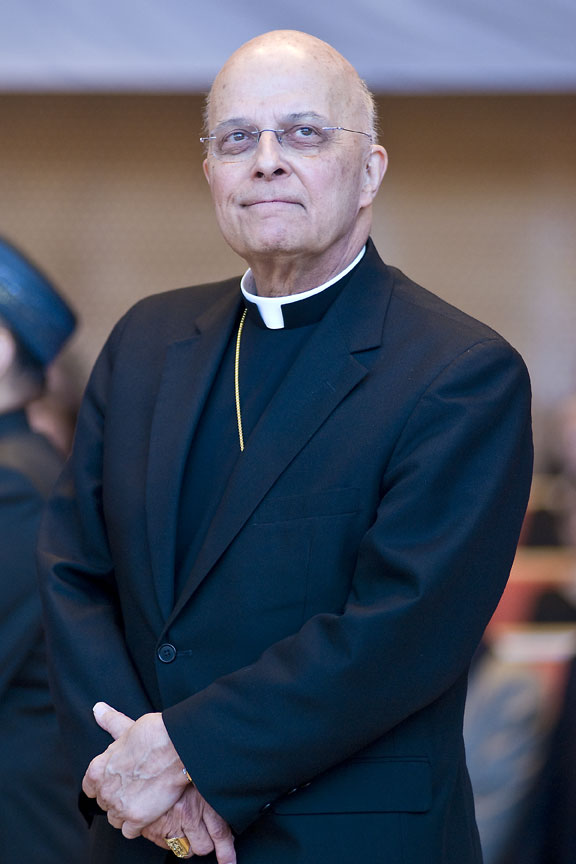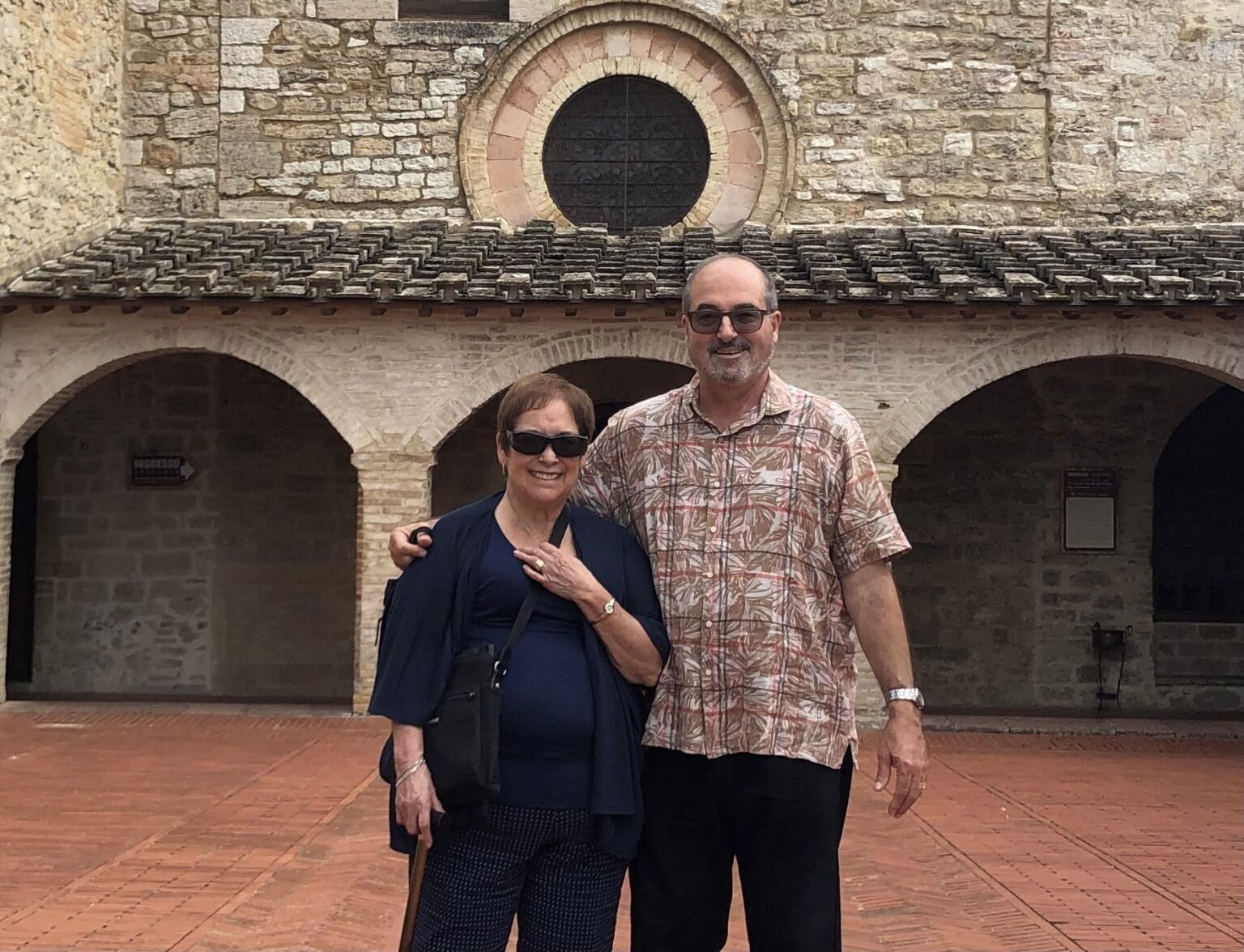 Story by Sean Connolly.
Story by Sean Connolly.
Photo by Adam-Bielawski, via WikiMediaCommons.
Pope Francis is known for his openness to the Spirit, his emphasis on evangelism and his embrace of evangelical Protestants and Pentecostals. A little-known story about Cardinal Francis George, who died on April 17, reveals that he too was open to the Spirit and to graces from other Christian denominations.
The story starts in 1990 after Bishop George was appointed to lead the diocese of Yakima, Washington. There he met Fr. Perron Auve, a diocesan priest who became his vicar general. Auve was a charismatic Catholic and a leader in the People of Praise, a community of families and single people from many Christian denominations. The People of Praise grew from the charismatic renewal that swept through the Catholic Church in the late 1960s and ‘70s until it had impacted 36 percent of U.S. Catholics.
Auve described the People of Praise to George and put him in touch with Paul DeCelles, the community’s overall coordinator. He also introduced George to Joel Kibler, a layman who is the head of the Brotherhood, a group of men in the People of Praise who live lives of dedicated celibacy.
Because the People of Praise is a predominantly lay and ecumenical community, its leaders had to face questions about how they would relate to ordained ministers. DeCelles, one of the 29 founders, had discussed this with fellow founder Kevin Ranaghan before the community began in 1971. In 1981, DeCelles and Kibler had talked about finding a way for Brotherhood members who felt a call to the Catholic priesthood to receive ordination.
This was a complicated situation. Catholic priests in the Brotherhood would need to be able to live in households with brothers who were Presbyterian, Pentecostal or Baptist. As covenanted members of the People of Praise, the priests would have made permanent commitments to a community which, according to its foundational documents, could have a Protestant as its overall coordinator.
While pursuing a path for community members to be ordained, DeCelles, Auve, Kibler and others had consulted canon lawyers and approached four US Catholic bishops. All four had passed on the idea, but George took a different view. DeCelles says George was warm to the idea from the start. In a later meeting, George said to Kibler, “What you want to do is from the Holy Spirit. You have something to tell the Church.”
George himself already had a deep understanding of community from his experience in the Oblates of Mary Immaculate—he had been vicar general of the order for 12 years and had traveled the world visiting missionary Oblate communities.
“He understood community life more than most other bishops,” as Auve recalls.
In June of 1991 George attended a People of Praise prayer meeting in South Bend, Indiana, the community’s headquarters, where he also met with a small group of community leaders. During the meeting George expressed his admiration for the way that the Brotherhood paid all their expenses from a single checking account—living in common the way the first Christians had done.
With George’s encouragement, DeCelles, Kibler and several others continued the slow and difficult work of crafting the constitutions and statutes that would establish the Brotherhood as a Private Association of the Faithful within the Catholic Church. Fr. William Woestman, a canon lawyer and Oblate whom George had recommended, also assisted them.
Kibler recalls sitting across a desk from George in 1996 while they read through a draft of the constitutions. George had been positive on the draft, but he expressed disapproval after reading the section which had described how the Brotherhood could have Catholic and Protestant members.
“He told me that I had to insert a sentence that said that the consciences of Protestants would be respected,” Kibler recalls.
In George’s view, the Church was changing. Protestants could be part of a canonically-established Catholic association, but they had to be assured that the Catholic members would not pressure them to convert. George recommended looking at the Declaration on Religious Freedom from Vatican II (Dignitatis Humanae, 2) for inspiration.
After he had been appointed Archbishop of Portland, George invited the men of the Brotherhood to move there, and in 1996, a few Brotherhood members began attending Mt. Angel Seminary. Archbishop John Vlazny, George’s successor in Portland, formally approved the Brotherhood’s statutes in 1999, and since that time four Brotherhood members have been ordained as priests.
In 2014, Pope Francis appointed one of them, Peter Smith, as the auxiliary bishop of Portland, Oregon.
Bishop Smith, who also knew George personally, said of him, “He was very open to new movements and the movement of the Holy Spirit within the Church. He was very forward- thinking while being firmly anchored in Church teaching. The whole notion of him being this arch conservative is so wrong. We are part of a lay ecclesial movement, with an ecumenical dimension, and he took a very positive position—the Holy Spirit is at work here, so we need to be open to the Spirit.”
This article also appears on The Anchoress.


Responses
Kathy Dobson says:
October 11th, 2015 at 8:18 PM
This is something I never knew. Small World!